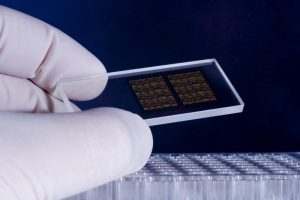Lubricated Medical Device Coatings Provide a Safe Haven for Invasive Procedures
Medical device coatings have become a huge asset to the medical industry.
 Because medical device coatings and devices tend to range in applications in such a broad spectrum, there are various classifications used to order the distinctive coatings. Of fundamental concern is sanitation. Medicinal coatings need to maintain a strategic distance from allergenic substances while repulsing microscopic organisms so they can be utilized on a wide assortment of patients without gambling on new diseases. This is extremely important as patients can be highly sensitive to any foreign cell or bacteria that enters the body. Furthermore, it’s essential that these coatings are aligned with proper medical protocols to ensure safety.
Because medical device coatings and devices tend to range in applications in such a broad spectrum, there are various classifications used to order the distinctive coatings. Of fundamental concern is sanitation. Medicinal coatings need to maintain a strategic distance from allergenic substances while repulsing microscopic organisms so they can be utilized on a wide assortment of patients without gambling on new diseases. This is extremely important as patients can be highly sensitive to any foreign cell or bacteria that enters the body. Furthermore, it’s essential that these coatings are aligned with proper medical protocols to ensure safety.
Lubricated Coatings
Lubricated coatings are utilized on devices that require additional help with being embedded into different devices or organic openings. Case in point, a catheter must be lubricated in its entirety before insertion in a patient or it can be an agonizing procedure that may cause peril to a patient. Basically, a lubricant lessens both static and active rubbing to facilitate the contact of two distinct surfaces. Since lubricants are utilized to put inorganic gadgets into patients’ bodies, they should meet certain biocompatibility and hemocompatibility (similarity with blood) norms as measured by the FDA – along with being produced in efficient PVD coating equipment. Also, lubricants must stay away from development and chipping when they come into contact with water or different liquids. A practical lubricant will meet FDA models of bio-and hemocompatibility, won’t grow or piece upon contact with liquids, and hold usefulness after rehashed use.
Denton Vacuum, LLC supplies only the finest vacuum coating systems on the market, for the most competitive prices. For more information, visit Denton Vacuum, LLC today!
